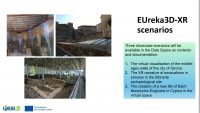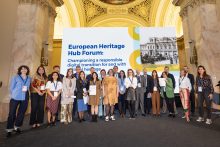Culture x Climate 2020 is a virtual global forum for arts, culture and heritage-based climate action, presented from 12 October to 27 November, by the Climate Heritage Network.

Culture x Climate 2020 brings together leaders, practitioners, researchers, and experts from business, government, universities and civil society to promote new partnerships between cultural actors and stakeholders across sectors. It is designed to unite all those interested in the role of arts, culture and heritage in tackling the climate emergency and aims to enhance the capacity of these sectors to help build a climate-neutral and resilient world in the time of COVID-19.
Over a 45-day period, three events series will be held:
- November Dialogues. A series of three virtual Dialogues across multiple time zones under the theme: “A Culture of Resilience: Mobilising Arts, Culture and Heritage to Win the Race to Zero” held as part of the UN November Dialogues.
- Regional Climate Heritage Forums. A series of five Climate Heritage Network regional forums that will spotlight the work in each region of the world to mobilise arts, culture and heritage for climate action. They include Africa and the Middle East, Asia-Pacific, Europe and the Commonwealth of Independent States, Latin America and the Caribbean, and North America.
- Climate Heritage Mobilisation Webinars. A series of 7 webinars, held in partnership with Historic England’s Climate Friday, showcasing the diverse work across the Climate Heritage Network to increase the ambition and capacity of arts, culture and heritage to engage in climate action, science and policy.
In addition, on November 16, Climate Heritage Network members and other partners will meet in an action-oriented Annual General Assembly with the aim of organizing, planning and preparing to bring the voice of arts, culture and heritage to the next UN Climate Summit (COP26).
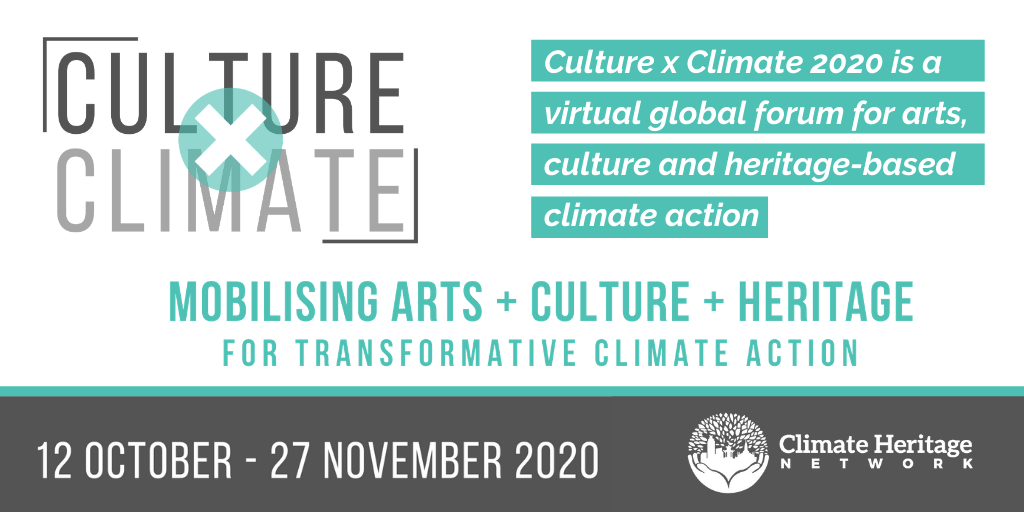


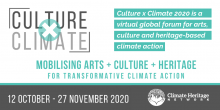
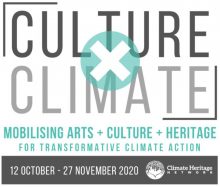
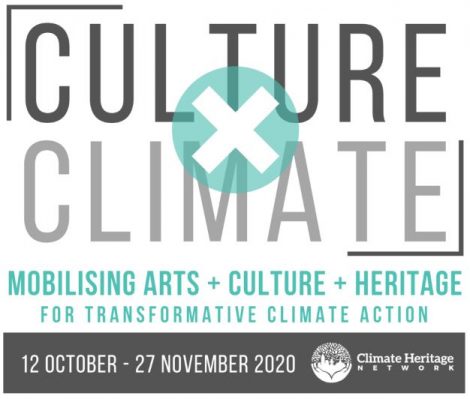
 It is designed to unite all those interested in the role of arts, culture and heritage in tackling the climate emergency and aims to enhance the capacity of these sectors to help build a climate-neutral and resilient world in the time of COVID-19. It promotes new partnerships between cultural actors and stakeholders across sectors and encourages the culture sector to play its part in driving greater ambition at UN Climate Summit (COP26).
It is designed to unite all those interested in the role of arts, culture and heritage in tackling the climate emergency and aims to enhance the capacity of these sectors to help build a climate-neutral and resilient world in the time of COVID-19. It promotes new partnerships between cultural actors and stakeholders across sectors and encourages the culture sector to play its part in driving greater ambition at UN Climate Summit (COP26).
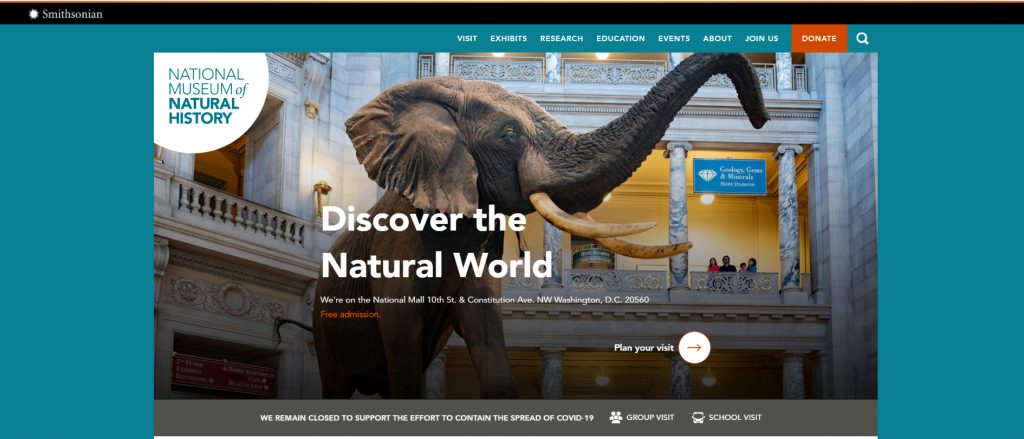
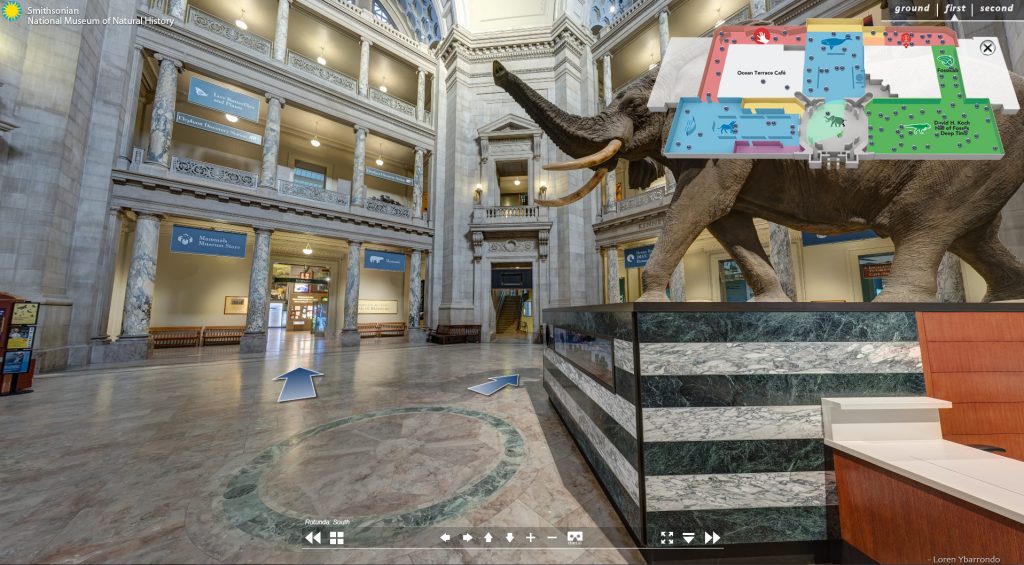
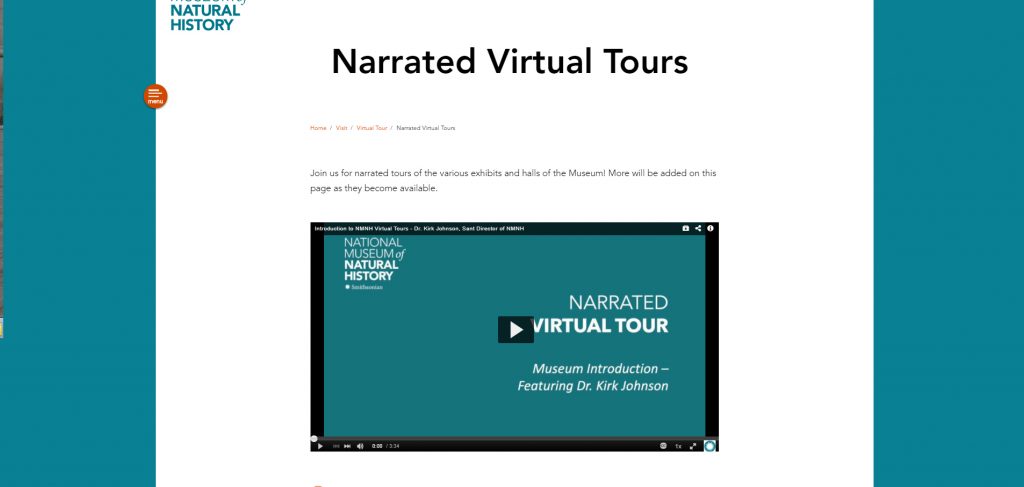
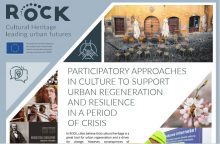


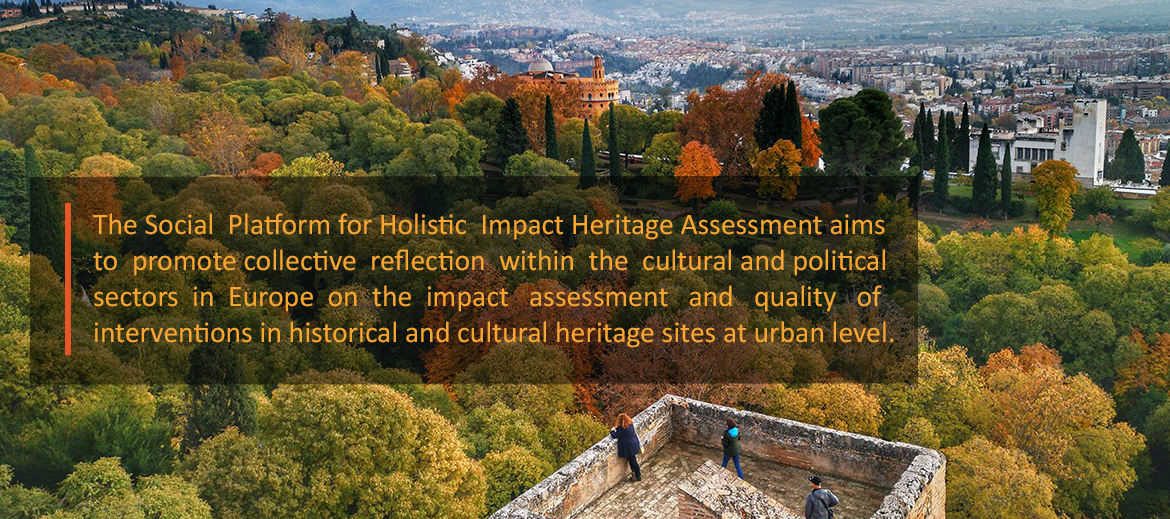 SoPHIA is a two years project started on January 2020 which aims at proposing a holistic impact assessment model for historical, environmental and cultural heritage in Europe. With the term holistic it understands that the economic, social, environmental and cultural dimensions necessary to any intervention on heritage must be addressed comprehensively. The Platform will identify the most important challenges and opportunities linked to cultural heritage interventions in Europe. It will explore the general topic and the current situation as regards policies, assessment and quality of interventions, including best practices, and the creation of a draft holistic impact assessment model. It will also analyse specific case studies, focusing on people, domains and time. To achieve its goals, the project will bring together stakeholders from different fields who will define guidelines for future policies. UNCHARTED and the SoPHIA Platform has recently started a cooperation that will be increased by future common initiatives and mutual support. Surfing the waves of the pandemic, SoPHIA – Social Platform for Holistic Heritage Impact Assessment – held a first workshop online last June 25 and July 2 with its newly formed community of practice. The aim was to present the initial findings of the project, assess and exchange knowledges and practices, and spur the debate.
SoPHIA is a two years project started on January 2020 which aims at proposing a holistic impact assessment model for historical, environmental and cultural heritage in Europe. With the term holistic it understands that the economic, social, environmental and cultural dimensions necessary to any intervention on heritage must be addressed comprehensively. The Platform will identify the most important challenges and opportunities linked to cultural heritage interventions in Europe. It will explore the general topic and the current situation as regards policies, assessment and quality of interventions, including best practices, and the creation of a draft holistic impact assessment model. It will also analyse specific case studies, focusing on people, domains and time. To achieve its goals, the project will bring together stakeholders from different fields who will define guidelines for future policies. UNCHARTED and the SoPHIA Platform has recently started a cooperation that will be increased by future common initiatives and mutual support. Surfing the waves of the pandemic, SoPHIA – Social Platform for Holistic Heritage Impact Assessment – held a first workshop online last June 25 and July 2 with its newly formed community of practice. The aim was to present the initial findings of the project, assess and exchange knowledges and practices, and spur the debate. SoPHIA is currently bridging its first theoretical phase, during which it has collected and analyzed the literature and policies related to heritage impact assessment models and methods, with its second practical phase that foresees the design of an impact assessment model to be tested in selected cultural heritage sites, practices and events. The first phase has highlighted, among other things, the lack of models that duly address the four dimensions considered as fundamental when dealing with heritage interventions, namely the social, economic, cultural and environmental dimensions; the priority given to the economic dimension at the expense of other fundamental dimensions; the lack of consultative and participatory processes that provide for a sense of ownership by the communities; as well as the need for assessment models that take into account the long term impact of interventions, especially after so-called big events.
SoPHIA is currently bridging its first theoretical phase, during which it has collected and analyzed the literature and policies related to heritage impact assessment models and methods, with its second practical phase that foresees the design of an impact assessment model to be tested in selected cultural heritage sites, practices and events. The first phase has highlighted, among other things, the lack of models that duly address the four dimensions considered as fundamental when dealing with heritage interventions, namely the social, economic, cultural and environmental dimensions; the priority given to the economic dimension at the expense of other fundamental dimensions; the lack of consultative and participatory processes that provide for a sense of ownership by the communities; as well as the need for assessment models that take into account the long term impact of interventions, especially after so-called big events.
 SOPHIA is a two years project started on January 2020 which aims at proposing a holistic impact assessment model for historical, environmental and cultural heritage in Europe. With the term holistic it understands that the economic, social, environmental and cultural dimensions necessary to any intervention on heritage must be addressed comprehensively. The Platform will identify the most important challenges and opportunities linked to cultural heritage interventions in Europe. It will explore the general topic and the current situation as regards policies, assessment and quality of interventions, including best practices, and the creation of a draft holistic impact assessment model. It will also analyse specific case studies, focusing on people, domains and time. To achieve its goals, the project will bring together stakeholders from different fields who will define guidelines for future policies.
SOPHIA is a two years project started on January 2020 which aims at proposing a holistic impact assessment model for historical, environmental and cultural heritage in Europe. With the term holistic it understands that the economic, social, environmental and cultural dimensions necessary to any intervention on heritage must be addressed comprehensively. The Platform will identify the most important challenges and opportunities linked to cultural heritage interventions in Europe. It will explore the general topic and the current situation as regards policies, assessment and quality of interventions, including best practices, and the creation of a draft holistic impact assessment model. It will also analyse specific case studies, focusing on people, domains and time. To achieve its goals, the project will bring together stakeholders from different fields who will define guidelines for future policies.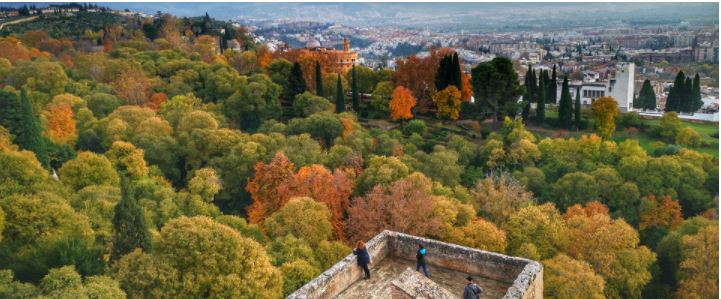 In the first place, the context of the SoPHIA project was presented. This was followed by a series of keynote speeches that set the framework for the issue at hand: Annalisa Cicerchia, Roma Tre University, presented “Impact Assessment Methods” and Beatriz García, Institute of Cultural Capital, University of Liverpool, shared her views on “Why do present Impact Assessment Models prove inadequate”. The gaps and opportunities identified regarding heritage impact assessment models were also presented with a summary of guidelines and programmes from the EU and other world regions. Participants debated in small groups and, based on their experiences, contributed different perspectives that will be taken into account in the drafting of the SoPHIA impact assessment model. All the material of the Athens Virtual Workshop will be shortly made available for download from the SoPHIA website.
In the first place, the context of the SoPHIA project was presented. This was followed by a series of keynote speeches that set the framework for the issue at hand: Annalisa Cicerchia, Roma Tre University, presented “Impact Assessment Methods” and Beatriz García, Institute of Cultural Capital, University of Liverpool, shared her views on “Why do present Impact Assessment Models prove inadequate”. The gaps and opportunities identified regarding heritage impact assessment models were also presented with a summary of guidelines and programmes from the EU and other world regions. Participants debated in small groups and, based on their experiences, contributed different perspectives that will be taken into account in the drafting of the SoPHIA impact assessment model. All the material of the Athens Virtual Workshop will be shortly made available for download from the SoPHIA website.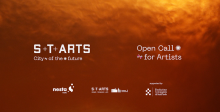
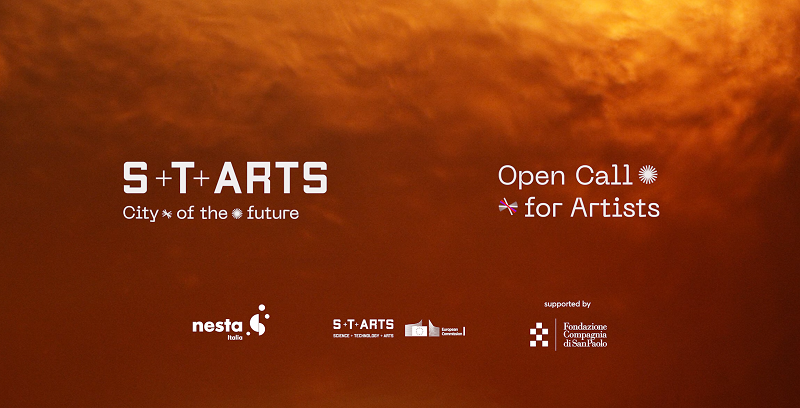
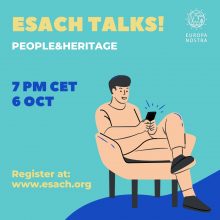
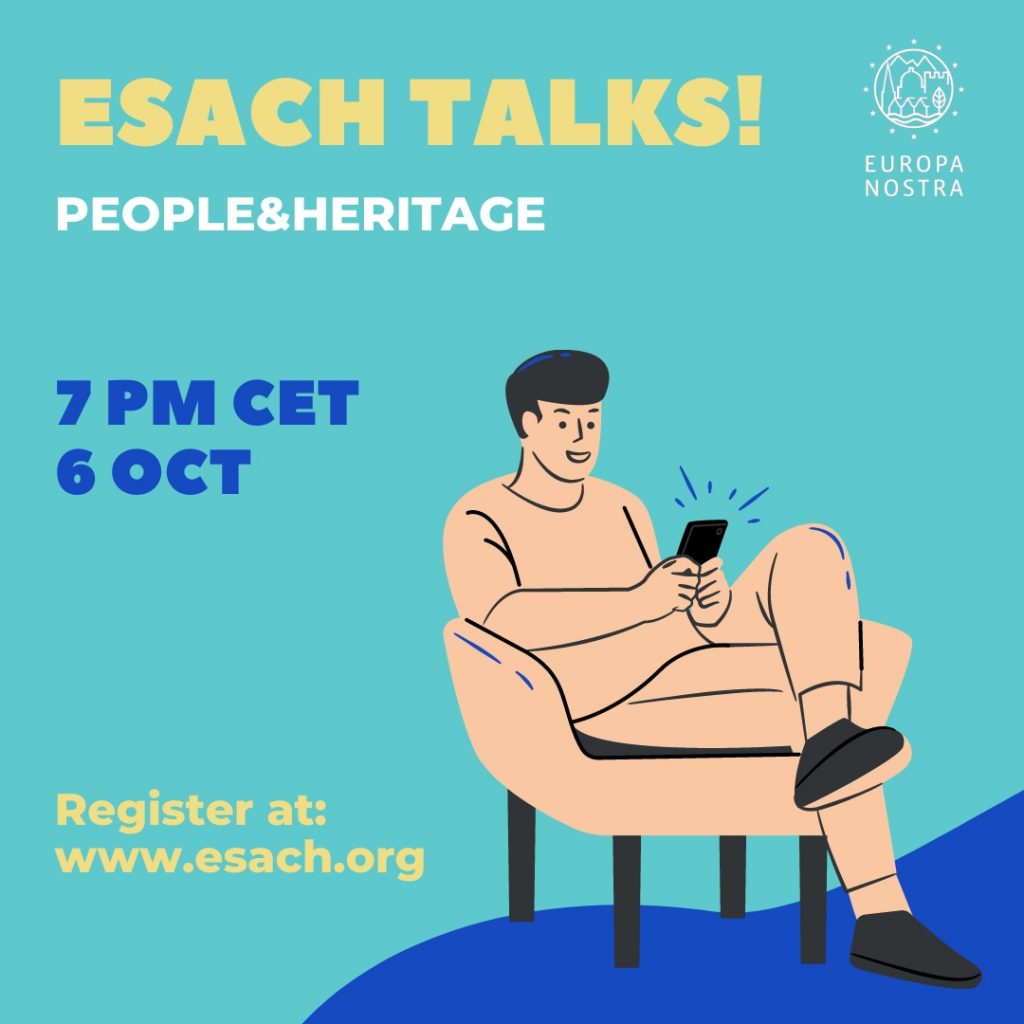
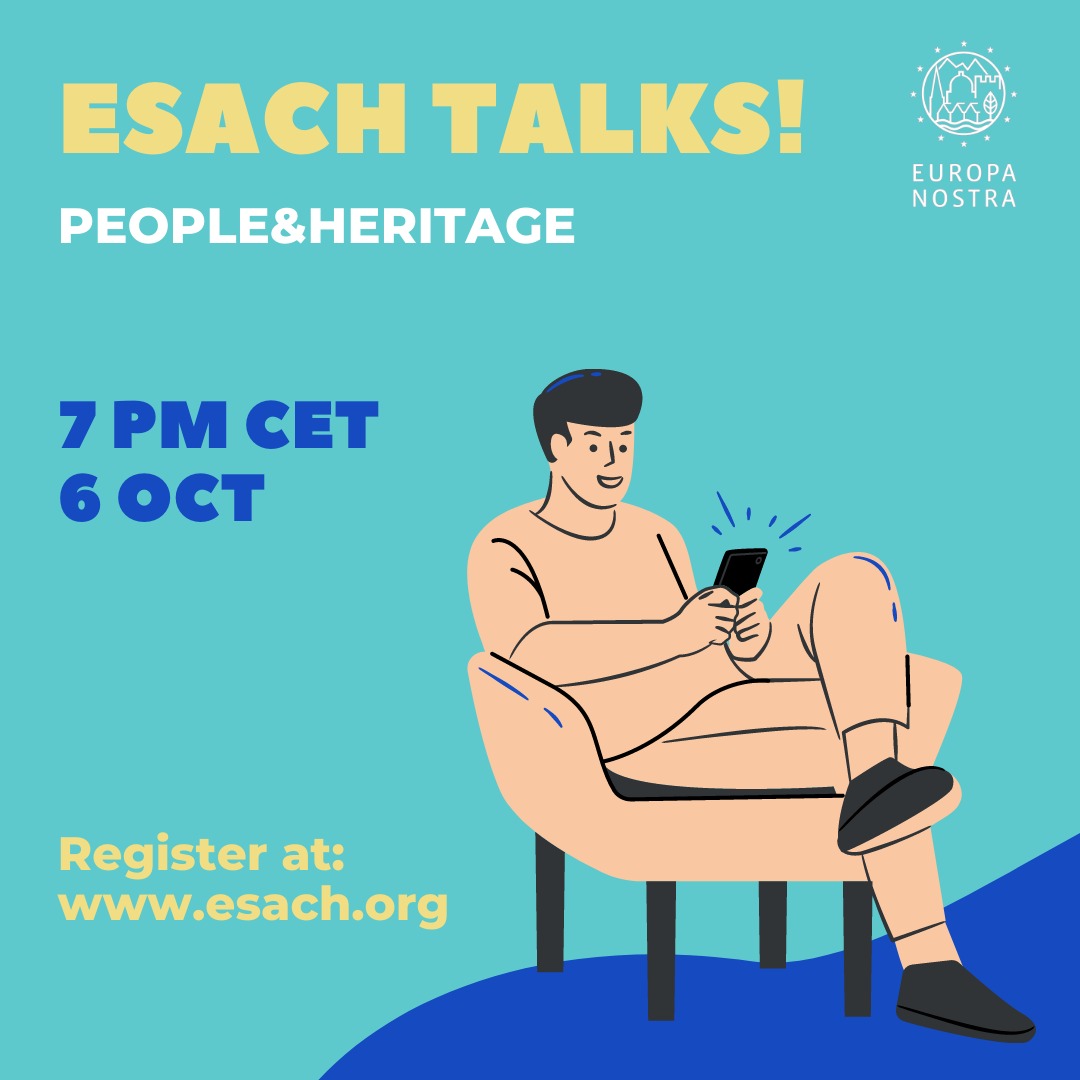
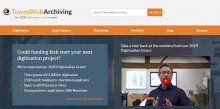
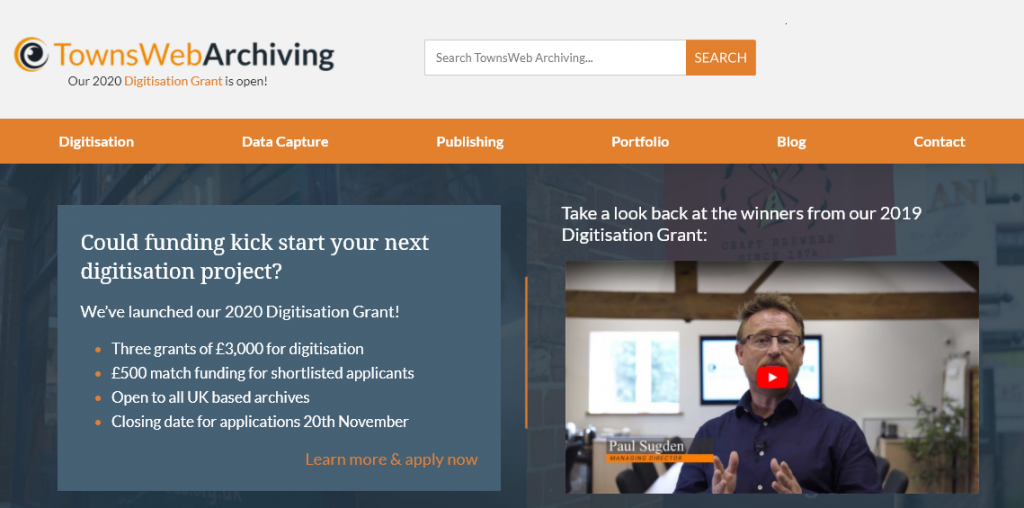
 If you have interesting news and events to point out in the field of digital cultural heritage, we are waiting for your contribution.
If you have interesting news and events to point out in the field of digital cultural heritage, we are waiting for your contribution.





























